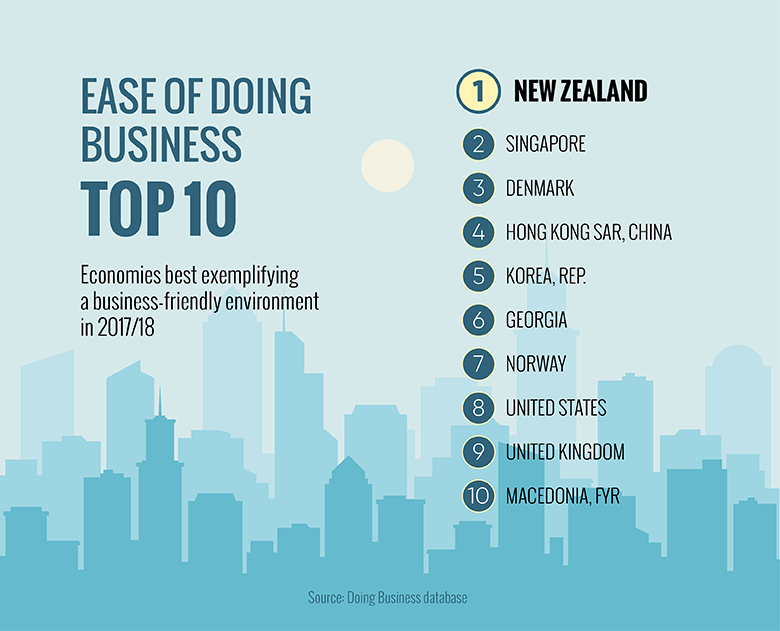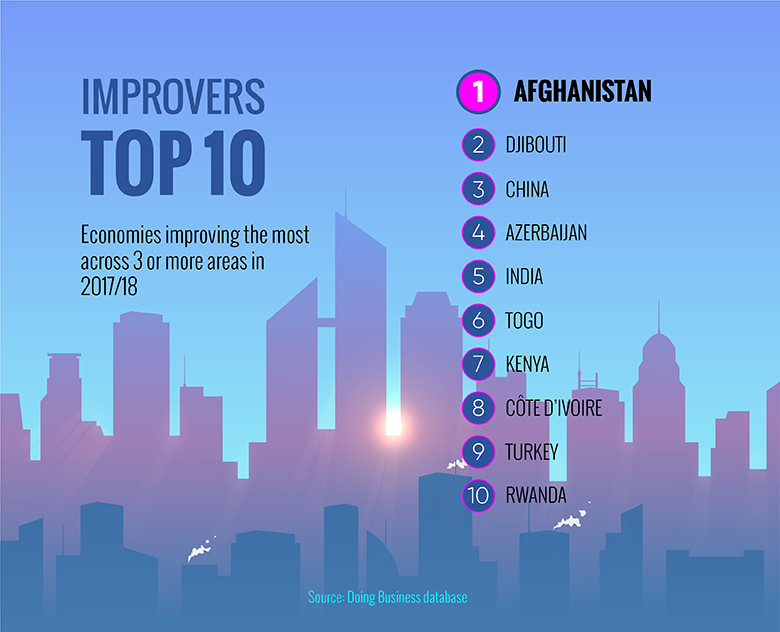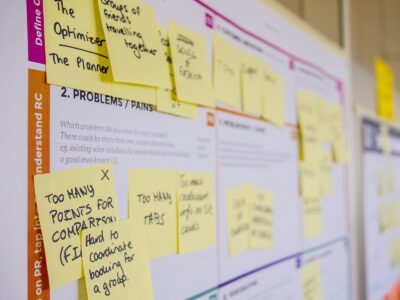Every year, the World Bank releases a report on doing business in the global economies. The series of annual reports compares business regulation in 190 economies of this world. The Doing Business in 2019 edition is the 16th in series which features things everyone considering a global business should look into.
These measures aspects of regulation affecting 10 areas of everyday business activity. These are; Starting a business; Dealing with construction permits; Getting electricity; Registering property; Getting credit; Protecting minority investors; Paying taxes; Trading across borders; Enforcing contracts, and Resolving insolvency.
The report illustrates how reforms in business regulations are being used to analyze economic outcomes for domestic entrepreneurs and for the wider economy. It is a flagship product produced in partnership by the World Bank Group that garners worldwide attention on regulatory barriers to entrepreneurship.
Almost 140 economies have used the indicators to shape reform agendas and monitor improvements on the ground. As an example, the image below shows the top 10 economies with the highest rating in 2019.

However, the economies with the most notable improvement are Afghanistan, Djibouti, China, Azerbaijan, India, Togo, Kenya, Côte d’Ivoire, Turkey, and Rwanda.

What is measured in Doing Business?
Major issues such as Starting a business, Getting a location, Accessing finance, Dealing with day-to-day operations, and Operating in a secure business environment are measured. These major aspects are further divided into sub-groups which are important for businesses.
For better understanding of all these, you can download the 236 pages report by World Bank.
Source: World Bank. 2019. Doing Business 2019: Training for Reform. Washington, DC: World Bank. DOI: 10.1596/978-1-4648-1326-9. License: Creative Commons Attribution CC BY 3.0 IGO





